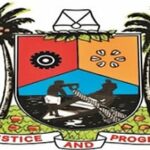
RISING reports of rights abuse and extortion by police officers painfully bring home the reality that despite promises, the Federal Government has failed to reform the Nigeria Police and remake it into an agency compatible with a democratising polity. Almost daily, complaints are filed or reported in the mainstream and social media of abuse or extortion of citizens by the police. The government should drop cosmetic measures, dismantle the current circumscribed structure and build a people-oriented, decentralised policing system as obtainable in every truly federal system.
Daily, uniformed officers funded with taxpayers’ money to protect citizens and defend their constitutional rights, constitute themselves as cruel instruments of oppression and harbingers of death, causing families unmitigated sorrow, pain, and loss. The Complaint Response Unit of the Nigeria Police Force reported that it had received 14,976 complaints against police officers since its inception in 2015. A total of 258 police officers have been punished and 31 dismissed. The unit said N55.6 million in extortion proceeds was recovered and returned to their owners. It said that in 2021 alone, the police received 1,244 complaints.
Alarming though they are, the figures constitute only a fraction of the incidents of abuse of citizens’ rights and the pervasive corruption in the system. Many others go unreported. A 2016 NOI Polls survey found that 76 per cent of victims of human rights violations in Nigeria do not report them. This is largely because they do not trust the law enforcement agencies.
Gross violations of rights by policemen also go unreported and unaddressed because some victims are not educated on their rights. Others are too frightened to speak up. Since most victims are never known, heard, or seen, the authorities must commit to changing a repressive system that allows police officers to commit atrocities against the weak and the youth.
A good place to begin is to stop the illegal and indiscriminate deployment of officers to celebrities, businessmen and politicians. Five officers deployed as personal guards to a popular singer, Damini Ogulu, aka Burna Boy, recently went berserk at a nightclub in Lagos. They shot two club patrons over a trivial argument. While the culprits have been arrested following public outrage, the traumatised victims may never be the same again. The Inspector-General of Police, Usman Baba, and the Commissioner of Police, Lagos State, Abiodun Alabi, should explain why Ogulu merited being escorted everywhere, including to clubs, by a contingent of five officers in a country where the police-to-citizen ratio is 1:648. Worldwide, entertainers, celebrities, corporations and businessmen hire private guards. British media reported that American celebrity couple, Beyonce and Jay-Z, have 16 private personal bodyguards protecting them and their daughter round the clock.
But the singer is not alone. Former political office holders, even hoodlums, and the barons of the violent and lawless transport unions also go about with platoons of police officers at their beck and call. Meanwhile, the country is battling an unprecedented crime wave and the police are overwhelmed. Despite the security challenge that requires full deployment of all available police personnel in anti-crime duties, Baba and his commanders continue to deploy officers to an increasing number of individuals for personal guard duties.
Many undertake duties fit only for domestic servants, gatemen and nannies. A former Assistant Inspector-General of Police, Rasheed Akintunde, said only 20 per cent of police officers are doing the core duties of protecting lives and property because 80 per cent are attached to private businesses, officials and individuals. Overzealous and undisciplined, many of them abuse civilians in the service of the VIPs, including terrorising and harassing other motorists in traffic. This obnoxious practise must stop.
A culture of indiscipline and corruption that emboldens police officers to disregard the orders of their superior officers, including those of the IG, is noticeable in the force. Nigerians have seen IGs’ orders to police officers to stop illegal checkpoints, searching of phones and laptops, illegal collection of money for bail, demanding permits for tinted glass of vehicles, and enforcing traffic duties reserved for other law enforcement agencies, among many others flouted with impunity. This suggests a deep rot in the system. It is also a serious indictment of the effectiveness of the police leadership.
Some police officers have become armed robbers, abducting motorists and youths at gunpoint on spurious grounds and forcing them to ATMs to withdraw money for them. Admittedly, an increasing number of such outlaws in uniform are being punished and extorted money refunded after being exposed by the mass media, but many victims do not report.
The President, Major General Muhammadu Buhari (retd), with just a year left in office, has not undertaken the promised reforms of the Nigeria Police beyond a pay rise and moves to recruit thousands of new hands. Baba, like his predecessors, is another failure. He has not withdrawn officers from VIPs to deploy them in the fight against crime, and he has not stopped or drastically reduced rights abuses and extortion.
Buhari should initiate extensive police reforms. His moves to raise their pay and recruit 20,000 new constables are welcome but not enough. Police culture must become community and people-oriented, with huge investments to meet current realities. State police is also urgent for Nigeria’s heterogeneous society.
For effective policing and control, only a decentralised policing system can work in a natural federation like Nigeria. Even in unitary systems, decentralisation is the norm; China has regional, municipal and city police. The United States has the most decentralised police arrangement with every community entitled to its own police force. Therefore, there is a high level of security in these countries.
The 36 state governors must come together to make this a reality. Most currently fund the federal police in their states, providing patrol cars, communication gadgets among other logistics. They should go the whole hog, and join hands with federal and state legislators to invoke the ‘doctrine of necessity’ and amend the 1999 Constitution to facilitate state police.





